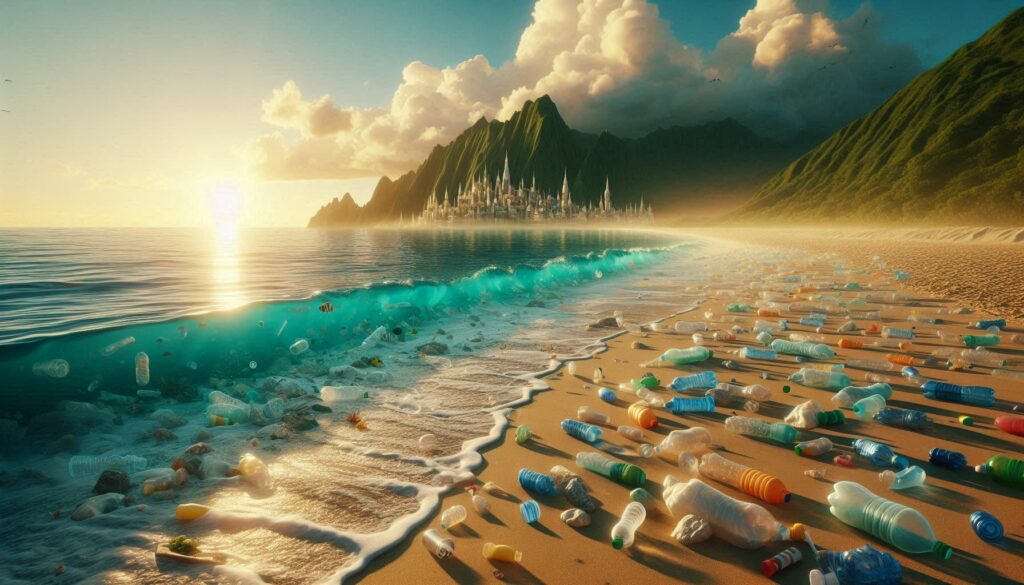
Plastic is fantastic

But it’s out of control
- Dateline
- 5 July 2028
Since China became the world’s largest supplier – by far – of plastic for packaging and containers, the price of plastic has plummeted, making it the material of choice for oh so many applications, from bottles to baskets, and everything in between.
But overcapacity has a dark side. Not only are the factories running on half shift, others in the developed world have simply died, unable to compete with the ‘China price’. Which means that China dominates the sector, and dictates the prices for everything from raw materials to shipping.
It’s slightly technical, but China has ramped up the building of small to medium plants over the last decade, as part of their rapid industrialization program. Now they are producing polypropylene, PVC, and PET in vast quantities, exceeding domestic demand and flooding global markets.
The feedstocks for these plants are almost entirely derived from fossil fuels and petrochemicals, making it a major challenge for anyone who wants to decarbonize the supply chain and reduce overall emissions.
But the worst impact for the environment is the availability of so much polluting plastic, which is difficult and costly to recycle. Almost all of it, around 98%, ends up in landfills, rivers and the oceans, despite strict regulations in the EU and US.
The dream of reducing plastic pollution by switching to bio-polymers and compostable containers and packaging has simply evaporated. It makes no commercial sense, and consumers aren’t willing to foot the bill, when Chinese plastic is so cheap!
There’s a glimmer of hope on the horizon. If scientists from MIT and Korean universities can perfect their plastic-eating algae and microbes, and breed them on an industrial scale, we can rid the world of plastic, permanently.
Links to related stories
- China’s plastics boom is set to create another trade headache – Business Maverick, 2 July 2024
- Fast-acting enzyme breaks down plastics in as little as 24 hours – New Atlas, 27 April 2022
- From cutting carbon to pricing plastic - Mindbullets (Dateline: 5 May 2025)
- Natural is the new synthetic - Mindbullets (Dateline: 29 May 2030)
- Making nature work again – Mindbullets (Dateline: 27 July 2027)
Warning: Hazardous thinking at work
Despite appearances to the contrary, Futureworld cannot and does not predict the future. Our Mindbullets scenarios are fictitious and designed purely to explore possible futures, challenge and stimulate strategic thinking. Use these at your own risk. Any reference to actual people, entities or events is entirely allegorical. Copyright Futureworld International Limited. Reproduction or distribution permitted only with recognition of Copyright and the inclusion of this disclaimer.